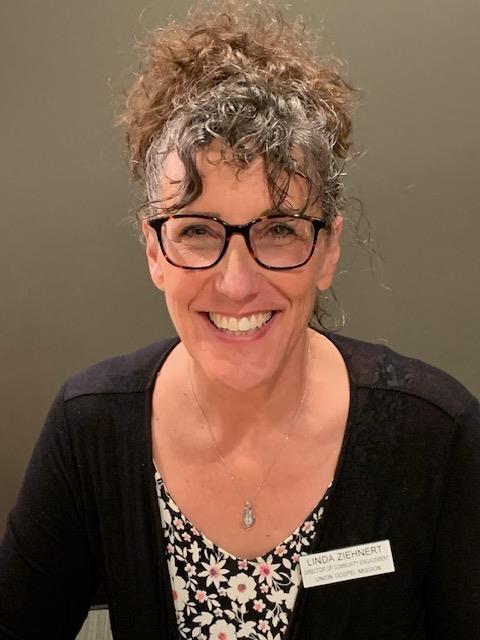North Notes
Spokane-North Rotary Club
May 22,2023
Calendar:
May 29: No meeting – Memorial Day.
June 5: Rotary lunch. Noon, at the Bark. Speaker: TBA.
June 12: Rotary lunch. Noon, at the Bark. Speaker: President’s Update
June 19: No meeting. Juneteenth Holiday
.
June 26: No Rotary lunch. Year-end dinner gathering. 6 p.m. at Maryhill Winery, 1303 W. Summit Parkway in Kendall Yards.
Happy Buck$:
Bill Simer was happy – and wearing – his Bloomsday virtual finisher T-shirt. (No mention if he got a matching shirt for his dog.)
Chuck Rehberg donated $1 to join the golfing worldwide “Block Party,” in honor of Michael Block, the 46-year-old club pro from Mission Viejo, Calif., whose high ranking and hole-in-one during the PGA’s major championship thrilled viewers everywhere.
It’s Official
At the May 22 luncheon the slate of officers and directors for the 2023-24 Rotary year was approved unanimously.
Continuing the club practice of selecting quarterly presidents, the lineup includes:
Presidents: Michelle Fossum, 1st quarter; Nancy Hanson, 2nd quarter; Ron Noble, 3rd quarter, and, Bill Simer, 4th quarter. Bill also will lead charitable fund giving and programs.
Other officers are Lenore Romney, Treasurer; Melinda Keberle, Secretary, and Steve Boharski, Past-President.
Directors include John Mailliard, Colin Prestesater, and Chuck Rehberg (International Service).
UGM reaches out for the poor
One way to think about the challenging issues of homelessness is the level of barriers.
At the club’s May 22 luncheon, Linda Ziehnert, director of community engagement for Spokane’s Union Gospel Mission, offered a comprehensive and compelling overview about various programs.
 She said UGM programs are “high barrier.” Participants attend counseling, chapels. Bible studies or churches, and must avoid violent behavior and drugs and alcohol problems, she said.
She said UGM programs are “high barrier.” Participants attend counseling, chapels. Bible studies or churches, and must avoid violent behavior and drugs and alcohol problems, she said. In comparison, Ziehnert said the city’s Track Center on East Trent is “low barrier,” not nearly as strict as UGM rules.
She added that “Camp Hope,” where hundreds of the homeless occupied the east Spokane land during the past year, was “no barrier.” Of Camp Hope operators, Ziehnert said about UGM, “they don’t like us.”
The Union Gospel Mission was founded in 1951 as a Christian chapel and soup kitchen for homeless men in downtown, near Trent (now Spokane Falls Blvd.) and Bernard. For decades it has been operated by members of the Altmeyer family. Phil Altmeyer is the current executive director.
Some 50 years ago UGM was moved to space at 1224 E. Trent. Since then locations have grown and been added.
At East Trent there is a men’s shelter, men’s recovery, vocational advancement, aftercare services and youth outreach. There is a women’s recovery program at Anna Ogden Hall on west Mallon and a crisis shelter for women and children on east Illinois
.
UGM also has a student impact center on East Sprague. A mission camp in Ford, Wash., a center for women and children in Coeur d’Alene, a vehicle donation center in the Spokane Valley and thrift stores on West Boone and East Sprague in the Valley.
Last year, UGM’s four shelters fed 203,000 meals for the hungry and 106,000 nights of shelter. Some 3,000 medical visits were arranged, plus 237 men in women in recovery programs. And 336 men and women found jobs with UGM assistance.
But for all the big numbers, a UGM pamphlet said “addressing homelessness merely by providing shelter would be like treating cancer with bandages.”
“UGM targets the underlying causes of homelessness: broken relationships, dysfunctional families, mental illness, trauma, abuse and generational poverty.”
The UGM approach “acknowledges the needs of the whole person: physical, emotional, mental, social and spiritual.”
Ziehnert said those in need see a program case manager within two weeks.
She adds that after a program is finishes, “we don’t make them leave. They can stay a few months to save up money, find a place to live and get a job.”
Despite the heavy challenges of homelessness, Ziehnert says “there is reason for optimism.
She added: “Everybody is unique. Everybody has a story.”
Bulletin editors: Chuck Rehberg and Sandy Fink
